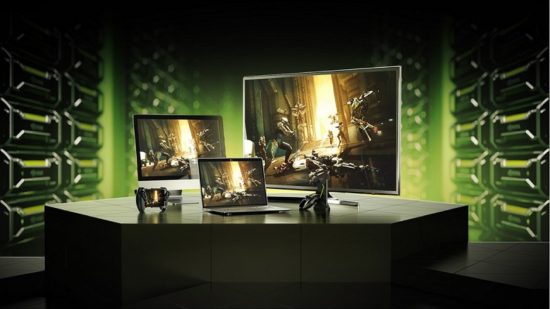Today sees the launch of the GeForce Now cloud gaming service from Nvidia after two years of beta testing. How it works is you join, either for £4.99 a month or with a free account, and then you can play games that you own from its library, streaming them onto your home system, whether that’s a desktop PC, Mac, or an Android phone. Good clean gaming fun provided your internet connection is up to the task.
The need for ownership of the games is perhaps the key feature that differentiates GeForce Now from something like Stadia. To play a game you have to own it, usually via Steam, and you log into Steam within the GeForce Now application to do so. It is a bit of a kerfuffle, particularly if you’ve got two-factor ID on your Steam login, but nothing major.
There are some pretty strict limitations on what you can do with the free account, for example you can’t play with RTX on, you are limited to only one hour gaming sessions and sometimes there is a queue to play but considering that it is, you know, free, it is hard to complain.
The appeal of GeForce Now feels perhaps more niche than something like Stadia because it presumes you’re already sitting in front of device you can play PC games on. Past that to really get much value from it you need a library full of Steam games, specifically you need a library full of Steam games that the PC in front of you can’t play better than a streaming service.
Not that this situation invalidates the GeForce Now system, but it changes it from being a primary games platform to an assistant. Maybe you want to see your favourite game in maximum settings for a change, maybe the PC in front of you isn’t yours but you still want to play, maybe you blew up a graphics card and you’re having to run everything with the only graphics card in the house that still works and it’s seven years old and your monitor thinks you’re joking and everything looks like GTA 3. In such a situation a cloud based system to essentially borrow a beefier system remote sounds ideal.
GeForce Go isn’t trying to reinvent the wheel in the way that Stadia has done, and perhaps the more modest approach is to its benefit.
